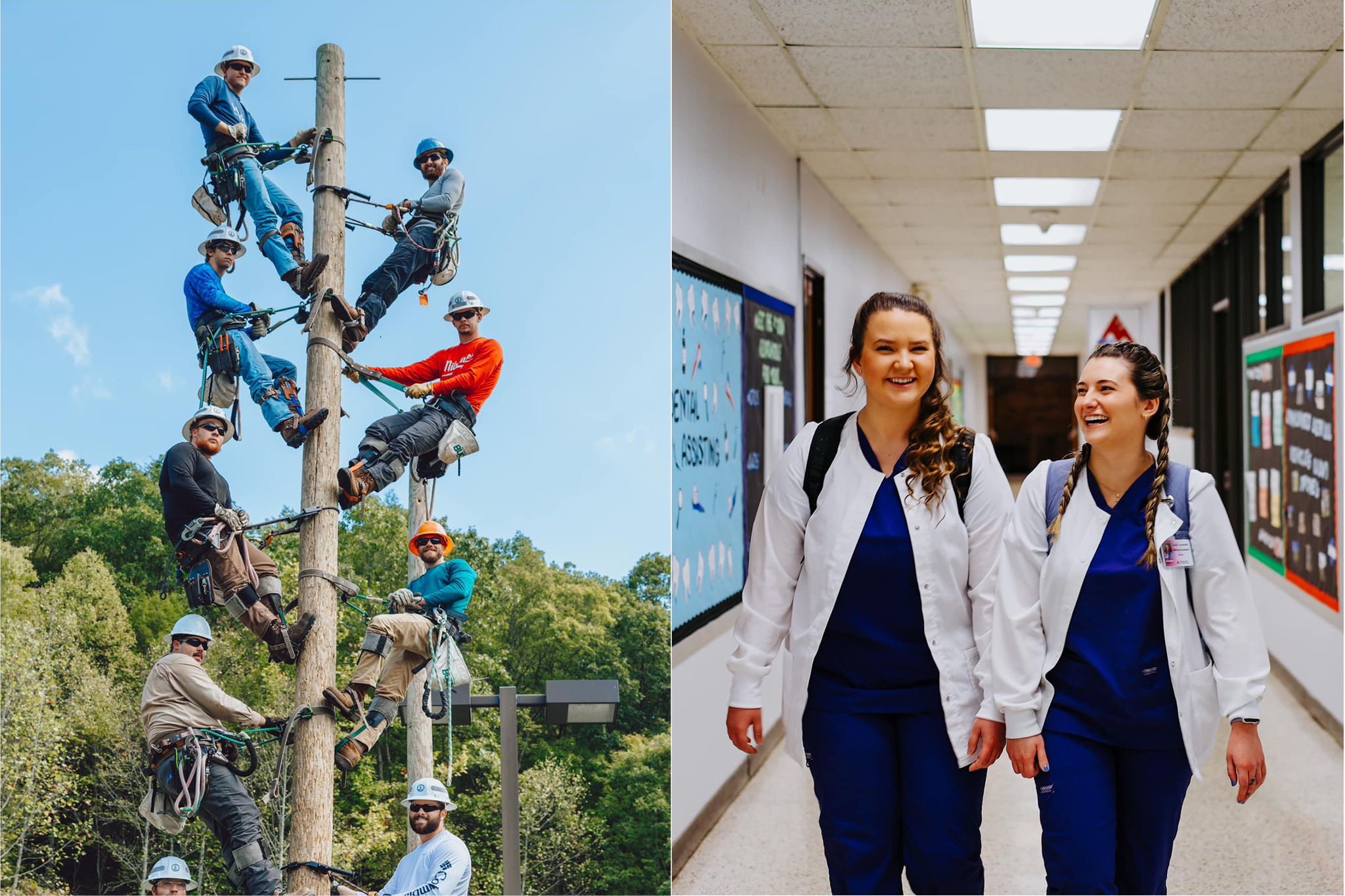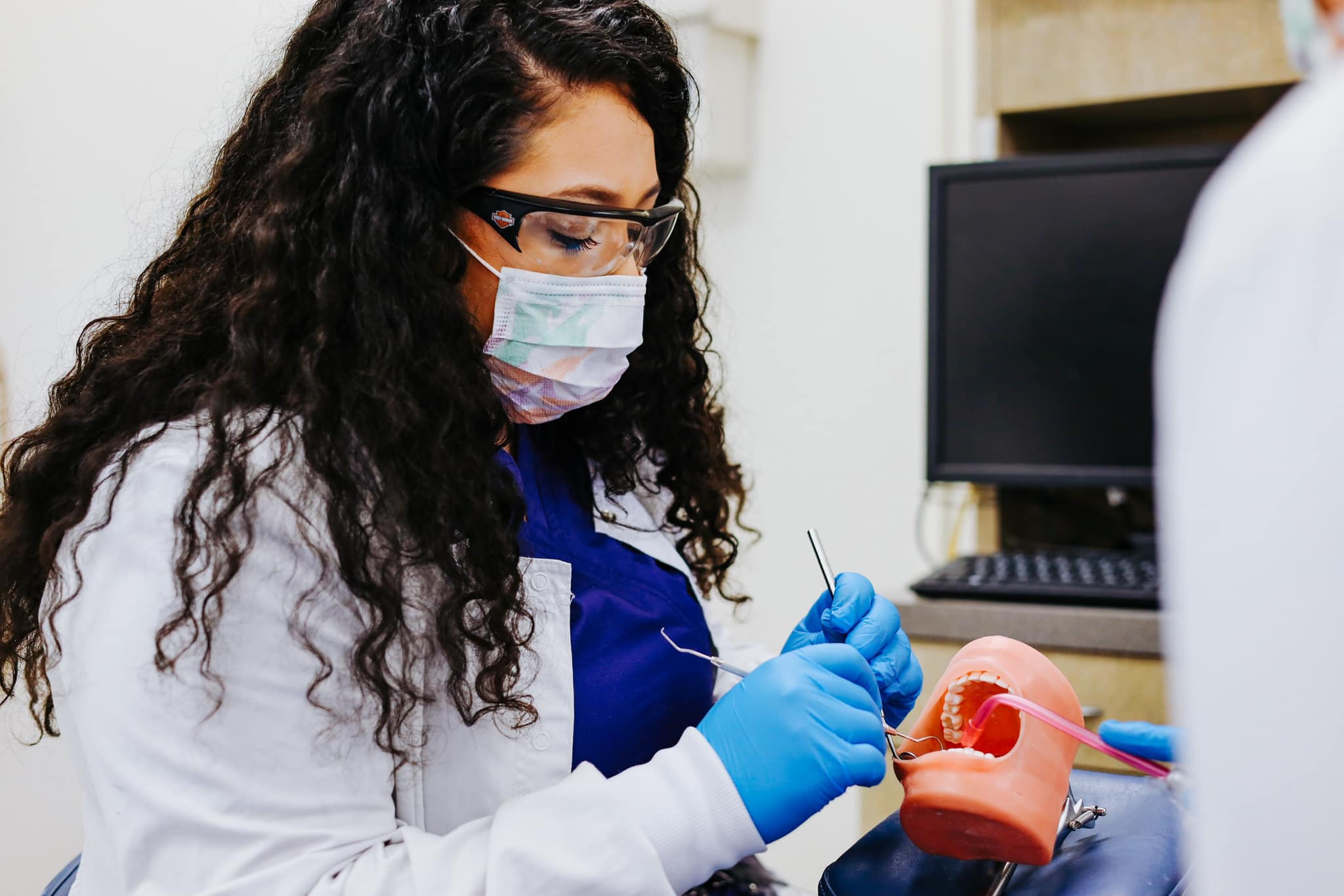To address the growing demand for skilled tradespeople in the region, Mountain Empire Community College secured funding from the Tobacco Region Revitalization Commission to expand its power lineman and commercial driver’s license (CDL) programs. This investment has expanded both programs to give students industry recognized credentials and meet the needs of regional employers.
The commission awarded MECC $253,593 in funds for the 2020 expansion, specifically to purchase equipment and perform electrical upgrades and infrastructure improvements. To help meet the region’s healthcare needs, MECC also utilized Commission funds to create a dental assistant program.
Enrollment at MECC was limited because of restrictions in equipment and instructional costs, with each program having an 8-month long waitlist. Now, the expansion allows for an additional 15 students per cohort in the power lineman program and 8 new students per cohort in the CDL program. Since 2020, 259 students have enrolled across both programs, with a total 186 total certificates awarded. The Dental Assistant program has had 51 graduates so far.
Each program has a projected positive job growth – Power Lineman expects job growth of 7-10% faster than the national average; CDL expects more than 5,000 job openings in the region; and Dental Assistants have a projected 19% job growth.
Lee Davis, workforce coordinator at MECC, said that these programs have successfully attracted skilled professionals back to the region.
“It’s expanded our local employment base,” Davis said. “A lot of the dental assistant students have started to come back to the region, with several at one of our local dentist offices. A lot of our CDL students are taking local jobs instead of long-haul jobs.”
Amy Greear, vice president of institutional advancement at MECC said she has seen first-hand, the results of these programs.
“It brings me such joy to go into a classroom full of young men and women that now know that they have a future and that they can stay here and live here if they want to. And I don’t think before these programs, that that was clearly defined for them,” Greear said. “We are not only meeting an employment demand, we are creating the future of our region.”
The result of TRRC funds – two upgraded programs and an additional dental assistant program – will support safety, effective training and allow students to earn additional credentials for high-demand careers in the region.
“There is no better funding investment for our region than training and educating our young people,” Greear said.




